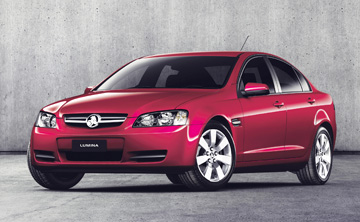
GM Holden Ltd. plans to launch an Australian-built Commodore that runs mainly on E85 by 2010 and is working to develop a pilot ethanol plant in Australia that turns grass clippings, woodchips and general household waste into biofuels.
“I’ve always said we’d take a leadership position on ethanol, and provide the vehicles to do that,” GM Holden Chairman and Managing Director Mark Reuss says in a recent speech in Melbourne, according to a transcript provided to Ward’s.
“As you know, ethanol is a renewable fuel, and the costs are relatively small to modify existing technologies to make it viable. It has great potential, particularly the ability to produce it from waste.
“To help lead the energy transformation here in Australia, we are in discussions with biofuels company (Warrenville, IL-based) Coskata Inc. to help establish the first local cellulosic ethanol facility.”
Reuss says the move would mark Coskata’s first venture outside the U.S. since announcing its partnership with General Motors Corp. last year, and the Australian plant would be the first of its kind outside the U.S.
GM holds an undisclosed equity stake in the upstart biofuels company that is enabling it to produce the next generation of biofuels without using a food source, making ethanol economically viable and commercially available.

“Together, GM and Coskata will work to accelerate the commercialization and retail development of biomass-based ethanol to encourage more stations to sell E85 and make this alternative fuel a viable choice for drivers of flex-fuel vehicles,” GM Holden says in a statement.
The Melbourne Age newspaper quotes Reuss as saying the E85 Commodores will be available with V-6 and V-8 engines and will produce more power than current models due to the biofuel’s higher octane rating.
“Climate change is driving a fundamental change in the types of vehicles and technologies Australian car buyers need and want,” he says.
Reuss also tells the Age that GM Holden intends to stimulate the supply of ethanol and the development of infrastructure. The auto maker will not use ethanol produced from food sources such as corn, preferring to use ethanol derived from non-edible plants, because they require a third less water to grow and have a smaller carbon footprint.
“We already have (E-85-powered) Saab vehicles on the market, but there is obviously greater market pressure required to stimulate infrastructure, fuel production and policy in Australia,” he says.
“The time to act is now, and that’s why I see 2009 as a year of transformation for Holden. Truly, this is the reckoning of General Motors.”




